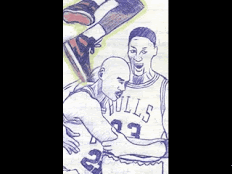The foreword of this book is written by Jason Avutia (The Chairman of LULA and an Elder), preface is by Lulua Odu 24th August 1996 Arua, West Nile. Born in 1947, Lulua Odu is a homeboy from Muni near Arua Town in the former West Nile District. In 1955 he entered Arua Demonstration Primary School at Mvara. During the 1959 Primary Leaving Examinations (PLE),, he came top in the whole District and won a six year scholarship paid by the West Nile District Administration. In 1960, Mr. Lulua proceeded to Ombatini Junior Secondary School in Terego County for two years before joining Kings College Budo (1962 to 1967). In July 1968 he went to the University of Dar es Salaam to read Law which he completed in March 1971. He obtained a Diploma in Legal Practice in 1975 at the Law Development Centre, LDC Kampala. In 1977, he was enrolled as an Advocate of the High Court of Uganda. Mr. Lulua has worked with the Immigration Department as Visa Officer and also the Nyanza Textile Industries Limited (NYTIL) as Legal Officer in Jinja. He is now a private legal practitioner based at Arua. He has, in addition, lectured in Business Law at the National Teachers College Muni. Lastly, Mr. Lulua was responsible for drafting the Constitution of the Lugbara Literature Association (Motto: Angu Owu ‘Bo [The Darkness has Cleared now]).
“I began my private research in 1966 while I was a student at King’s College Budo … from written sources and by interviewing different elders during vacation … I wish to thank … Jason Avutia (Chairman of LULA), Nahor Oyaa Awua (Co-ordinator LULA), Donato amabua (Chairman Arua DLC), Silla Mua (Court Broker), Barakia Yiti (Vurra Elder), Yoramu Badrayi (Ombokoro Elder) … particularly most grateful to the Dutch N.G.O. CAP West Nile for the generous financial assistance to LULA … to my deceased father Mr. Elisa Oda son of Kurua of the Ombokoro – Andruvu Clan. He encouraged me to study local history as a hobby.
Introduction: This book is an abridged version of the results of a research undertaken for the last 30 years on the history of the Lugbara (Madi) … intended for the general reader … For a long time, the Lugbara were generally regarded as people without recorded history. As such they could not be proud of themselves. The same applied to the Madi (The Lugbara are ethnically Madi and not vice versa) … the Lugbara and Madi have a common ancestry. (The issue of culture brings four [or five] countries together – Uganda, Sudan, Zaire and Nigeria [plus Congo])
Another pioneer in the formation of LULA is Abeti S. Ledra (Bachelor in Education, Masters in Education [Makerere University Kampala] Educationist)
SOCIAL STUDIES: A number of scholars have studied Lugbara Society. They were mainly European. The first was Major C.W. Stigand, a British tropical administration in the service of the Sudan Government who visited the Lugbara between 1911 – 3. Next was Dr. Alfred Tucker, a British linguist with a mission to study Eastern Sudanic languages including Lugbara (1930 – 2). The Most Well Known Researcher in the past, however, was John Middleton, an American Social Anthropologist who came to Vurra in December 1949. He wrote many books and articles on Lugbara myth, religion and mourning taboos for 3 years. At the same time, an Italian Catholic Missionary Father J.P. Crazzolara was studying the language. In 1960, the Oxford University Press published his book “A Study of the Lugbara (Madi) Language. In their footsteps came several individuals especially academicians at Makerere University. Foremost among the dons were Dr. Shiroya and Professor Delfovo. Also called A.T, the professor compiled a Bibliography on the Lugbara people and of writings in the language. Lulua’s book is a humble contribution intended to be an eye-opener to the world. The next publication to follow it is “A General History of the Lugbara (Madi) – a more detailed and comprehensive study.
This AikoGraphics (+256-781-345712) Cascade blogs about an amazing Cultural Heritage and includes some of the Old and New Things you need to know concerning the Lugbara World - modern, modest, distinct, wild and truly African. The Lugbara are the Largest Tribe in West Nile... MUNGU ni ambo [GOD is great]!
Aiko TV

Awa'difo mini nerisi...
Nda
Lugbara AI

Ojapi: Transcribe, translate, chat (+256-781-345712)...
O'bi Ni Ne Ndeni [Most Viewed]
-
Pronunciation in Lugbara has diphthong clusters and other noteworthy phonetics including the following: aa as in bat , for example embata...
-
My dream is to post a plethora of Lugbara lyrics and this is one of the very first projects I have indulged myself in. J.M. Kennedy is a ver...
-
e’yo [message, issue], o’diru [new], waraga [letter], 'ba [people], tualu [together], buku [book], isu [find], efini [meaning], osita [b...
-
[INSTRUMENTAL:] [CHANDIRU WHISPERS:] Agasi, aga'bo, agasi! Agasi, aga'bo! [VERSE ONE:] Ini ce ra, ale mi ra! Ico aco ku, ah...
-
"Ngoni?" is the standard Lugbara Greeting (meaning ‘How are you?’). "Muke!" is the Response when you are fine. Neverthel...
-
The foreword of this book is written by Jason Avutia (The Chairman of LULA and an Elder), preface is by Lulua Odu 24th August 1996 Arua, Wes...
-
Hiphop and Reggae are very dynamic and Black Harmony (from West Nile) are the supreme flag bearers of these genres in Lugbara-land. I prefer...

